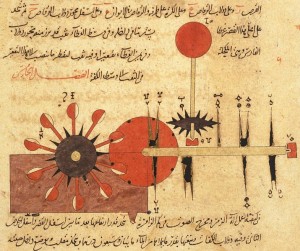 Last summer, author Nicholas Carr wrote a provocative article in The Atlantic entitled “Is Google Making Us Stupid?â€Â Carr, a former English lit major turned cyber critic, wondered whether our addiction to the Internet was beginning to sap our ability to concentrate for long periods of time. So accustomed have most of us become to skimming for information on the Net, he suggested, that we are no longer able to muster the attention needed to absorb a lengthy magazine article, much less War and Peace. Carr worried that the Web was actually beginning to rewire our brains, and not for the better.
Last summer, author Nicholas Carr wrote a provocative article in The Atlantic entitled “Is Google Making Us Stupid?â€Â Carr, a former English lit major turned cyber critic, wondered whether our addiction to the Internet was beginning to sap our ability to concentrate for long periods of time. So accustomed have most of us become to skimming for information on the Net, he suggested, that we are no longer able to muster the attention needed to absorb a lengthy magazine article, much less War and Peace. Carr worried that the Web was actually beginning to rewire our brains, and not for the better.
I personally don’t buy Carr’s ideas.  As a journalist, I often spend long hours daily online, but I’m still perfectly capable of immersing myself in a 50-page scientific article or a 500-page novel, and I know I’m not alone. I think, if anything, Carr has gotten things backwards. The Net is an astonishing boon to humanity, gathering up and concentrating information and ideas that were once scattered so broadly around the world that hardly anyone could profit from them. Moreover, I strongly suspect that one reason it appeals to us so powerfully is that our brains are already wired perfectly to use it.
There is little doubt, moreover, that one of the Internet’s masterpieces—Google Earth—is helping scientists in general, and archaeologists in particular, to answer crucial questions about the ancient past. One wonderful example of this new cyber partnership is The Digital Archaeological Atlas of the Holy Land, a work-in-progress which I recently discovered thanks to a tip from Derry Nairn at History Today.Â
If you haven’t seen this cool website, I’d strongly suggest that you take a peak. A team of some 30 leading archaeologists and historians are currently combining their data on the Holy Land’s ancient sites with Google Earth maps and a powerful Geographical Information System. The result, they explain, will be an online atlas that will analyze and present “new archaeological data for each key period of culture change in the Holy Land, from the Lower Paleolithic over 2 million years ago to the early 20th century when the region came under British control.â€
The current site is just a rough, working prototype of the finished atlas. But already, you get a sense of just how powerful this tool will be. Click on the “Empires†section, for example, and you have at your fingertips a series of cool maps ranging from the Old Babylonian Empire to The Ottoman Empire, all based on current archaeological data. It’s just the tip of the iceberg, however. In years to come, the team will gather and analyze data from many thousands of sites in the Holy Land, creating an evolving Atlas that will shed new light on key moments of human history—from the origins of modern humans and the origins of agriculture to the Urban Revolution.  Â
Until recently, all this information would have been scattered far and wide, much of it in small, regional journal articles and in “grey literature,†the unpublished reports gathering dust in corporate, government and university offices. Thanks to the Internet, it’s being drawn together into one powerful, continuously updated source that archaeologists around the world can access anytime they choose.  Â
All I can say is, stay tuned.  Â
          Â
This entry was posted by Heather Pringle on
Friday, February 27, 2009.
Discussion of this blog entry is now closed.
Comments posted here do not represent the views or policies of the Archaeological Institute of America.

